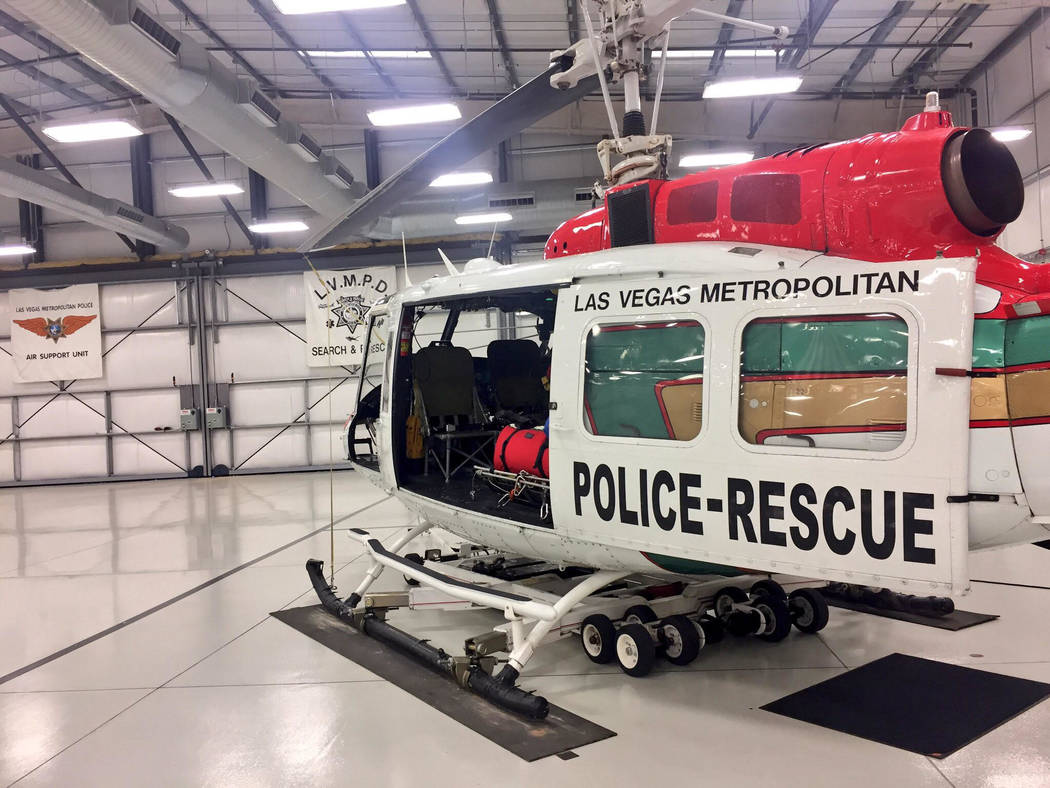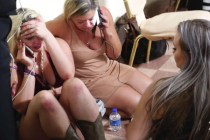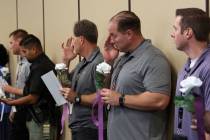Southern Nevada hikers should prepare before hitting trail

Each year, as the weather warms up, I often hear several search and rescue calls requested for hikers while listening to our police scanners at work.
Sometimes the calls are serious, with life-threatening injuries or even death. But in other instances, hikers are OK but either lost, out of drinking water or — depending on the season — too cold or hot to continue.
“We’ve actually pulled people out of conditions where it was snowing, or there was snow on the ground, and they were wearing shorts and T-shirts,” said Metropolitan Police Department Sgt. Dave Callen, who works as a rescue pilot.
Metro’s search and rescue unit responds to the trickiest of calls, often in locations that local fire crews and Bureau of Land Management rangers can’t reach. Their busiest seasons are spring and fall, when the weather is typically the best, Lt. Ken Delzer said.
During a tour of the unit’s helicopter hangar this week, Delzer stressed that hikers should do their best to be prepared, even if the weather is nice. As the valley saw Thursday, conditions can change quickly, and sometimes it can take hours for rescue crews to get to you.
“When you have a medical condition or something happens out there, we’re coming. We’re going to do all we can to get to you. But that could take a lot of time, depending on the position you’re in, the weather conditions,” Delzer said.
In some situations, injured hikers have been left in remote canyons overnight, until it’s safe for crews to rescue them.
PLAN FOR CONDITIONS
Before you head out on a hike, you should know what conditions to expect. As Callen suggested, you should also wear weather-appropriate clothing.
No matter the time of day, bring flashlights — just in case.
Know where you’re going. Even if you’ve been on a trail before, verify that you know the way. You can get maps at visitor centers, or you can research trails online ahead of time.
A first-aid kit may come in handy. And don’t forget water — lots and lots of water.
Delzer said search and rescue crews often receive avoidable calls.
“And that’s OK. I mean, honestly, it’s what we do. We love that. We dig going in there and getting people out, not that we want anybody to be hurt,” Delzer said. “But be prepared.”
ACCIDENTS HAPPEN
It’s common sense not to hike on trails that are above your experience level. But disaster can happen even with expert hikers.
Last year, 49-year-old Sean Randles died while leading a hiking group at Red Rock Canyon National Conservation Area. He tried to save another woman just as she slipped off a cliff, others in the group said. Randles went down with her, and the two died together.
“You don’t have to fall very far to get significant injuries,” Delzer said. “That rock is solid — it’s rock. Ten, 20 feet, you hit your head? You can die.”
Callen didn’t want to discourage anyone from hiking or climbing.
But always be careful.
Vegas Vice appears every other Saturday. Contact Rachel Crosby at rcrosby@reviewjournal.com or 702-387-5290. Follow @rachelacrosby on Twitter.












